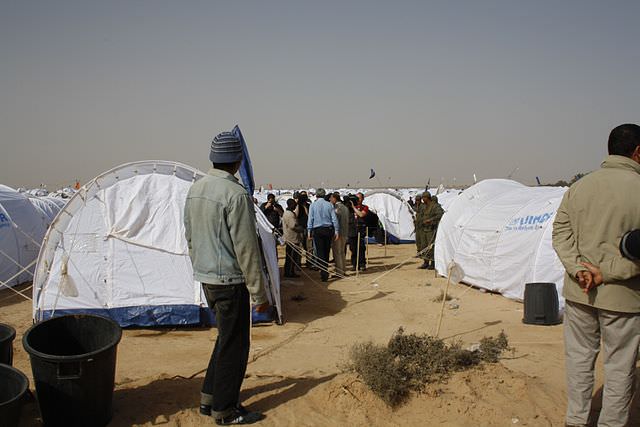World
Deadly Racial Violence Sweeps Tunisia as Anti-Migrant Tensions Escalate
By Belal Awad · July 6, 2023

In the wake of growing security concerns and the influx of migrants heading to Europe, tensions have soared in the Tunisian city of Sfax and across the country. The situation escalated further following the recent death of Nizar Amri, a Tunisian national involved in clashes with sub-Saharan migrants. As a result, racist sentiments have been on the rise, leading to xenophobic attacks and the displacement of huge numbers of migrants.
The death of Nizar Amri, a Tunisian national involved in clashes with sub-Saharan migrants, served as a catalyst for already rising racial tensions. Subsequently, several migrants were evacuated under police protection from their homes, facing heckling and hostility from locals. The tension escalated during Amri’s funeral, further exacerbating the concerns and fears of both Tunisians and migrants.
In an interview with France 24, Kathleen Maes, of the Norwegian Refugee Council, claims the tensions in Sfax were unfortunate yet “unsurprising”. She attributed the growing disinformation about migrants in Tunisia to the lack of clarity regarding the different categories of migrants, such as refugees, asylum seekers, and irregular migrants, with Sfax being the latest flashpoint. The city has become a breeding ground for rising tensions and xenophobic attacks on migrants, resulting in a pervasive climate of fear. Maes elaborates: “I think it’s presence close to Europe is one of the of the reasons for it. It lies along a transit route. So it is not only used by by migrants of other nationalities, but we’re also seeing an increased number of young Tunisians moving from the south to the coastal areas because of exactly the same reasons as as other nationalities crossing the Mediterranean, lack of opportunities, lack of information on which regular migration routes are possible.”
Maes underscores the importance of differentiating between various categories of migrants in Tunisia, dispelling the prevailing disinformation surrounding their presence. “Migrants and refugees are also not one unified group. We are actually looking at quite a multitude of nationalities and we do see that there is a difference in how people are treated. In general, people do not have enough information about what the difference is between refugee and asylum seeker. Regular migrants are people who find themselves for a variety of reasons in an irregular situation.” She acknowledges that while some Tunisians harbor fear and ignorance toward migrants, there is also a remarkable display of solidarity and support. Tunisians have rallied together to assist migrants, ensuring their access to essential services and safe transportation: “we do see networks ofcommunity volunteers making sure that people can go to their appointments often to find legal documentation or to have life saving treatment so that they can get there safely. We do see a lot of initiatives for people providing food or housing, temporary housing to migrants or refugees and asylum seekers.”
Tunisia’s political and economic crisis, is at the centre of the issue, with critics suggesting that Tunisia’s President Kais Saied taking a strict stance against migrants living in the country illegally, is a way for him to evade responsibilty for the coutry’s deep economic woes and provopking an increase in in tensions.
Tunisia is also facing pressure from European countries to prevent large numbers of migrants from departing its coasts. Authorities have arrested three migrants in connection with the recent clashes in Sfax, and an investigation is currently underway. However, this is not an isolated incident, as Tunisia has witnessed a surge in racially motivated attacks in recent months, including a stabbing attack by Tunisians on a migrant from Benin.
Light Wave commentary
As racial tensions persist across tunisia Sfax has become the latest flashpoint. Dozens of migrants have been forcibly evicted from the city or have fled independently. Many have sought refuge in the capital, Tunis, where they hope to regularize their immigration status.
The situation in Sfax highlights the urgent need for increased awareness, understanding, and support for migrants in Tunisia. Addressing the root causes of xenophobia and providing adequate living conditions and legal protection are crucial steps toward fostering a more inclusive